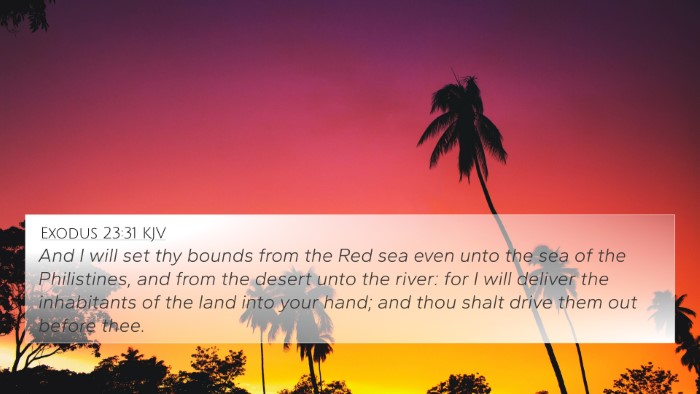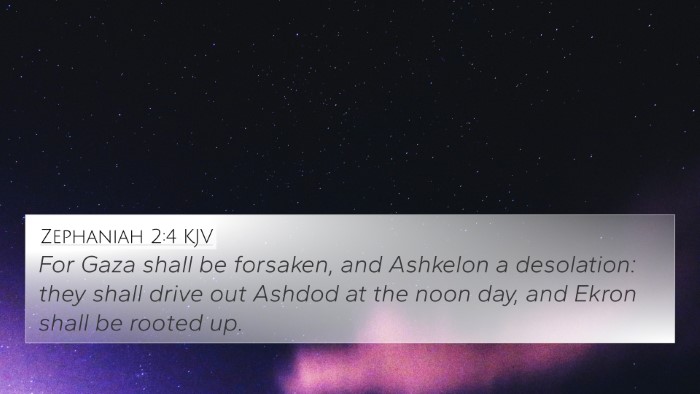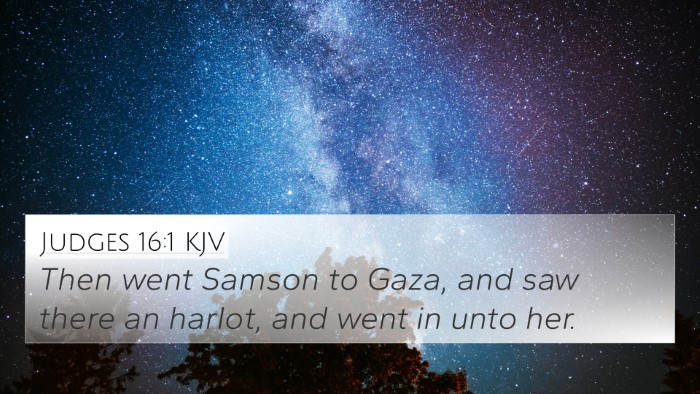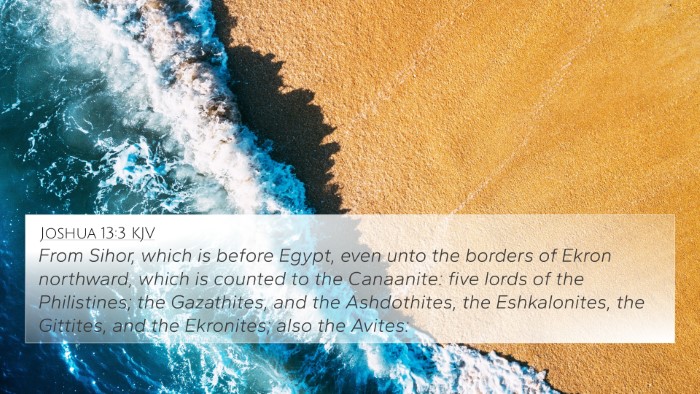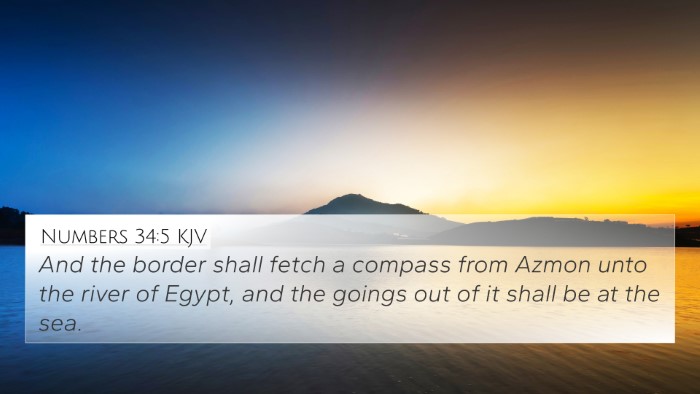Understanding Joshua 15:47
Joshua 15:47 is an important verse within the context of the distribution of land among the tribes of Israel. The verse reads:
"And Ashdod with its towns and villages, and Ekron with its towns and villages." This verse emphasizes the cities given to the tribe of Judah and notes significant locations that played a crucial role in the history of Israel, particularly in relation to the Philistines.
This verse can be explored through various commentaries, each offering unique insights that help to enrich understanding:
-
Matthew Henry:
Henry emphasizes that the cities listed, particularly Ashdod and Ekron, were key Philistine cities. His interpretation helps us appreciate the geographical context and the ongoing conflict between Israel and the Philistines, underlining God's providential control over the allocation of land.
-
Albert Barnes:
Barnes details the importance of these cities in the narrative of the Israelites' conquests. He highlights that Ashdod, a major Philistine city, represents the struggle for dominance in the region, and he discusses the strategic importance of controlling such territories.
-
Adam Clarke:
Clarke provides a historical background regarding the significance of Ekron and Ashdod, relating them to events throughout Israel's history. He delves into the implications of these cities, particularly considering the cultural and religious impacts they had on Israelite life.
In exploring the connections between this verse and others in the Bible (Bible verse cross-references), we can identify several relevant scriptures that enhance our understanding:
- 1 Samuel 5:1-12: Discusses the capture of the Ark of the Covenant and the subsequent issues faced by the Philistines in Ashdod.
- Joshua 13:3: Mentions the territory of the Philistines, setting the stage for understanding Israel's territorial conflicts.
- Judges 16:1-3: Relates to Samson's encounters with the Philistines, including events in Gaza, a neighboring territory.
- Zephaniah 2:4: Prophetic judgment against the Philistine cities, which includes Ashdod and Ekron, illustrating the theme of divine sovereignty over nations.
- Jeremiah 25:20: Expounds God’s judgment against the Philistines, adding depth to their historical role.
- Amos 1:8: Further judgment is declared upon Ashdod, providing a prophetic perspective on these cities.
- 2 Chronicles 26:6: Chronicles the reign of King Uzziah, who fought against the Philistines and secured Israel's borders.
These Bible verses that relate to each other contribute to a complex understanding of not only the geographical details but also the ongoing narrative of God’s covenant people amidst adversarial nations.
Furthermore, the verse allows us to practice Bible cross-reference methods by examining the thematic implications for the reader:
- Territorial Rights and Conflicts: How locations like Ashdod signify the struggles for land promised by God.
- Cultural Influence: The impact of Philistine cities on Israelite culture and spirituality.
- Divine Sovereignty: Recognizing God’s control over the fates of nations and His people.
- Prophetic Fulfillment: Understanding how such verses fulfill prophetic declarations about these territories.
- The Role of Memory: How remembrance of these locations impacts Jewish identity and faith.
In summary, Joshua 15:47 serves not only as a historical account but also as an invitation to delve deeper into the connections between Bible verses. It allows believers to engage more fully with God’s narrative through systematic exploration and analytical study of linking Bible scriptures.




